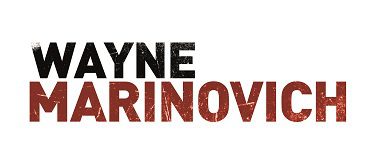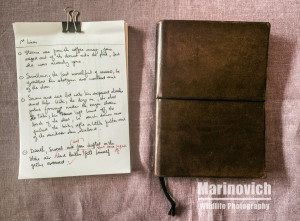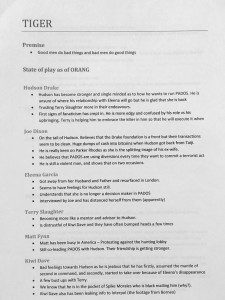Ideas and Concepts
Topics
- Ideas and concepts
- Researching your main ideas
- The one-page outline
The power of the imagination makes us infinite – John Muir.
Ideas and Concepts
All writing starts with a simple idea.
One of the key tools you require as a writer is a method to record your ideas. There is no way of knowing where or when that best-selling idea will push through. Other sparks of genius from you imagination will rise to the surface. You have to be ready to get it down on paper (or digital Notepad) as soon as it presents itself.
- You could overhear a conversation on a train or a bus.
- A newspaper headline could spark a plot.
- A television documentary or news bulletin could inspire a scene.
- You could love wizards and witches and want to write a teen series.
- … any once-off idea can lead to a novel.
So how do I record all my ideas and concepts? Firstly, I have a notebook that is always within reach when I am writing, travelling or doing research. Ideas could be for future pieces of work (books or blog posts), or they may be changes to current storylines I am working on. I even write down ideas I have for works which are already published. I might never actually make the changes to those books, but it is easier to read through all the notes than regret not remembering that wonderful idea.
Even though I am an environmentalist and someone deeply concerned about the planet, I do still print off my draft manuscripts for reworking and red-penning. I am a writer and find that by actually writing things down, and not typing them on a laptop, makes the creative juices flow even better. Once I have updated the digital file with all the changes, I am left with a couple of hundred A4 pages of waste paper. So I cut them in half, down to A5 size and use these small pads of paper for lists and ideas. That bit of recycling at least eases by conscience a little.
Before I throw out those pieces of reused paper, I go through my scribblings and transcribe them into my notebook. Most ideas tend to make the notebook as I am a bit of a hoarder, and you never know when you might need something.
When I am out and about, I also make use of the “note” app that comes with my iPhone. I am sure that all smartphones have some app for jotting down things. Any ideas I have while walking around London, get noted and transcribed at a later date into the notebook. These could include:
- Prose from a book I am reading.
- Quotes I see on billboards or signs
- Location descriptions for a novel set in an area I am exploring.
- The name of a future main character (two of my characters names came from reservation cards on tables in bars.)
So, I have three ways which I write down ideas, and I know that it sounds clichéd, but writers write things down.
One thing you’ll notice is how your ideas will all tend to be within a few areas (genres) which you read. There is no point in me trying to write soppy romance novels because I have never read one, so my thought pattern tends to drift towards books and movies which I enjoy.
Sitting down to “creative time” sessions do work because I think putting your backside in the seat for a few hours at a time, breeds both writing discipline and more creativity. Most ideas about plot and scenes come to me while I am writing other works, hence, the reason I have scraps of recycled paper to scribble them down. These sparks of creativity tend to happen a lot because I am always working on two different series at any one time, so my brain is constantly checking across the series plotlines.
Researching your main ideas
The Kyle Gibbs Series came about because I was originally researching a non-fiction book idea on climate change. The idea was for a type of “Climate Change for Dummies”. In amongst the list of possible repercussions of climate change, was the concept of the mass migration of people from low-lying poorer areas to neighbouring well-developed cities. A storyline developed where I had a group of Kenyans migrating from Central Africa with the dream of reaching Europe. It was as simple a concept as that. The main character, Gibbs, hadn’t even introduced himself to my imagination at that point.
Whenever I read the newspapers, I always look at main articles and ask myself a few questions about the headlines. What would happen if X didn’t give the information to Y but to Z instead? I then make a note in my notebook and leave it there. It’s just an idea. Occasionally I will start a single word page document and write up the ideas from my notebook and bits of paper, adding or culling as the creative juices percolate.
I guess the main restraint on collecting ideas would be if you were only writing a single book to tick off a bucket-list item. Your thinking would need to be more narrowly focused on that single book. Just be warned, if you only write and publish a single book, there will be so much free time on your hands, other ideas will come.
On your journey as a writer you will have a lot of downtime as you write a novel. You will need to take a few weeks break between reworking each draft manuscript and there will also be downtime when you send your manuscript your editor or proofreader. These forced breaks allow you to dovetail your writing projects with other novels, novellas, and short stories. So the ideas and concepts will keep on coming throughout your writing phase.
The one-page outline
I always find that once I have written down an idea, others seem to merge with it. Before long, you have the concept for a book. It’s at this time that I get working on a single page Word document. On a side note, I use Microsoft Word for my writing as it serves all my purposes. Other authors use tools like Scrivener and are prepared to pay the additional costs that it carries.
The one-page concept document is your first chance to get your whole book idea down on paper. A Word document is generally about 300-400 words per page, so that’s all you are aiming for. Don’t feel pressured to complete a whole page, just try and get an early summary down. It’s the first real chance to drive out any plotlines to see if there is a story there.
One of my current working projects started off with the idea for an ending of a novel. I could visualise my character in the last few scenes of the book. The one-page concept was the first attempt to work out how I got my characters to that ending. As I wrote it, three other possible characters formed and were added. And so the outline took shape.
Months later, after I’d completed the book’s chapter outline, I looked back at the original concept document. Only the ending had remained the same, plus one of the characters I’d envisaged. It doesn’t matter at all that everything was different. These page outlines are a chance to start somewhere but more importantly, it gets you writing. The ideas drive your research, sparking more ideas, leading to more research and in between is that writing thing we all love.
Another goal of these one-page outlines is to try and come up with the start or ending of your book. Knowing one of these still allows your imagination to fly, but it is tethered to a point so won’t get too out of control. Ships don’t aimlessly wander our great seas, they have harbours that anchor their start or end point. I always believe that as a writer you need to ring-fence your imagination a little. Decide your destination or your starting point. This will mean that your characters cannot drag your imagination all over the place, as more and more ideas push their way into your conscious.
Ideas and concepts are essential to your work but so is knowing when to write them into a piece of work.
Further Reading
Re-read the first page in the Writing Tip series – Part 1 – Writing a novel?
Or, move onto the third page – Part 3 – What type of writer are you?
Please click on the button below if you want to receive my newsletter with tips, book release updates and FREE sign-up gifts












